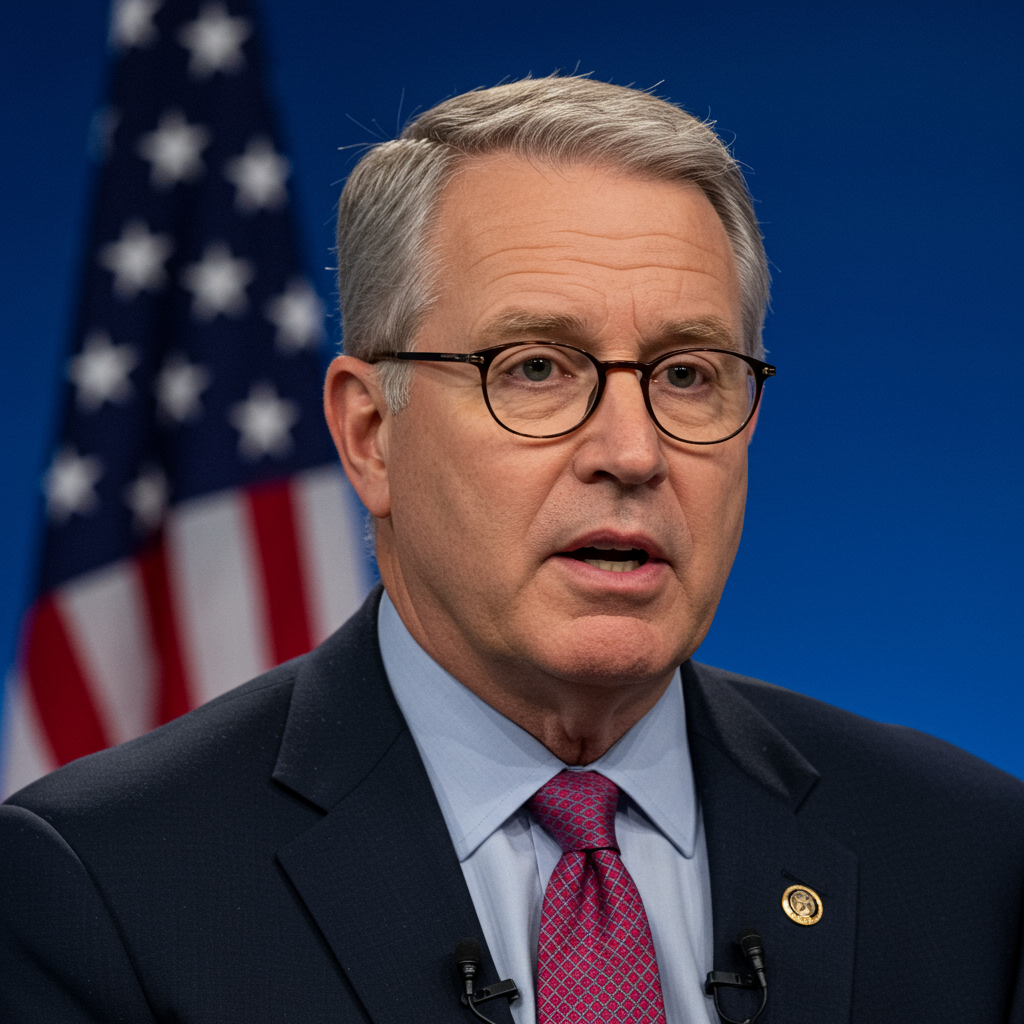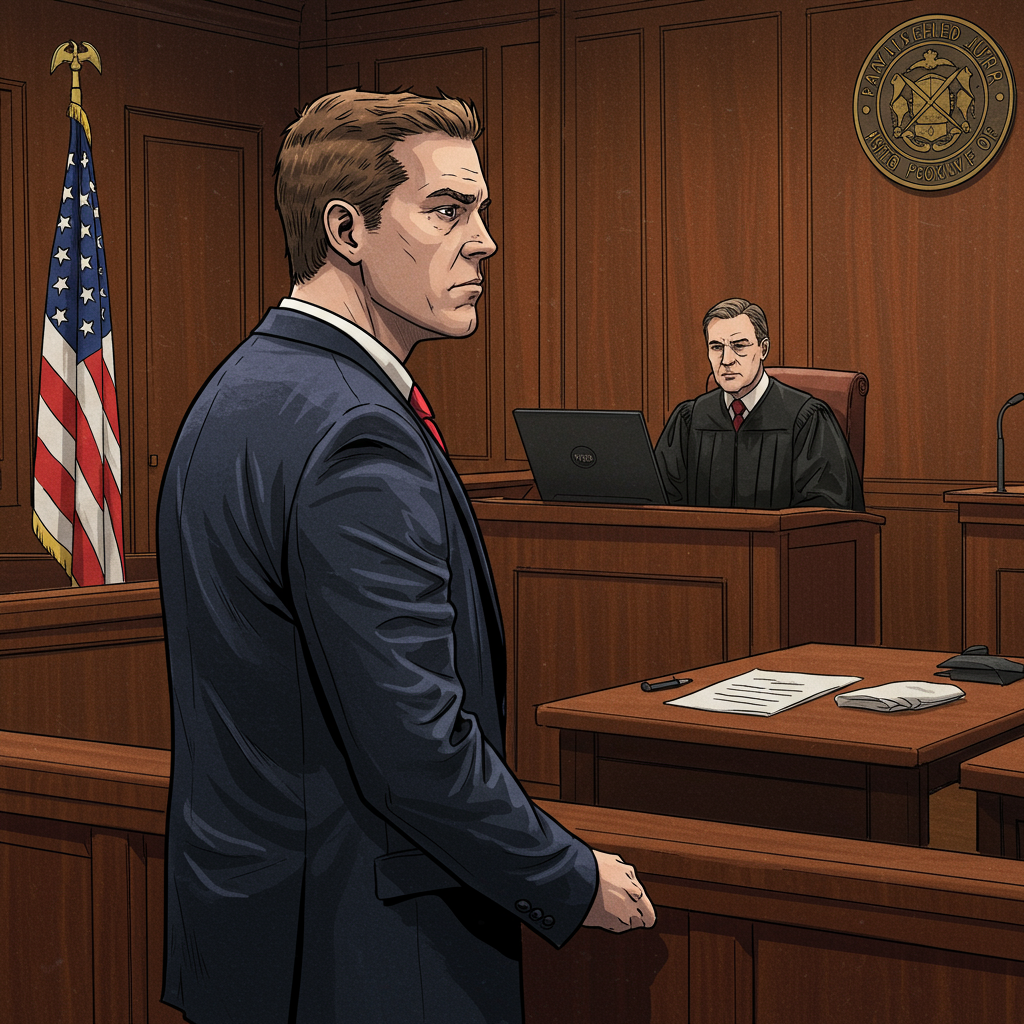Utah Governor Spencer Cox recently unveiled critical new details concerning Tyler Robinson, the 22-year-old suspect in the tragic assassination of conservative activist Charlie Kirk. Speaking on NBC News’ “Meet the Press” on September 14, 2025, Governor Cox provided insights into Robinson’s background, online radicalization, and the ongoing investigation. This high-profile case has amplified urgent discussions among political leaders about escalating political violence and the profound societal impact of online platforms.
Inside the Investigation: Unmasking Tyler Robinson
Governor Cox characterized the shooting of Charlie Kirk at Utah Valley University as a “dark time” for Utah and the nation. He confirmed authorities are confident in Robinson’s guilt, yet the central question remains: “the why behind this.” The governor revealed that while Tyler Robinson himself remains uncooperative, invoking his Fifth Amendment rights, individuals close to him, including his family and roommate, are providing significant assistance to investigators. This cooperation is crucial for understanding Robinson’s mindset.
Robinson’s profile presents a stark contrast. He possessed an impressive academic record, achieving a 4.0 GPA and a 34 on the ACT. Despite this, he dropped out of Utah State University after less than one semester in 2021. Following his return to southern Utah, Cox suggests Robinson became deeply immersed in what he termed “that deep, dark internet, the Reddit culture, and these other dark places.” This online engagement is believed to be a primary factor in his radicalization, transforming a seemingly “very normal, very smart” young man.
The Role of Online Content and Meme Culture
Forensic evidence from the crime scene further highlights this digital immersion. Authorities discovered bullet casings inscribed with a mix of “extremely online memes and gaming references.” One casing read, “notices bulges OWO what’s this?”, while unfired casings bore messages like “Hey fascist! Catch!” and “O bella ciao bella ciao bella ciao ciao ciao.” Governor Cox noted these inscriptions exemplify the “memeification that is happening in our society today,” reflecting Robinson’s deep engagement with internet subcultures. Officials are actively reviewing Robinson’s digital footprint and attempting to access his cloud storage to fully understand his intentions.
Suspect’s Ideology and Personal Relationships
Governor Cox stated that Tyler Robinson, despite hailing from a conservative family, was “deeply indoctrinated with leftist ideology.” His personal beliefs were “very different” from his family’s, according to their accounts. Robinson was not registered with any political party, and relatives observed his growing interest in politics only recently, recalling him criticizing Charlie Kirk during a dinner before the Utah Valley University event. Kirk himself was known for his provocative online debates and outspoken criticism, particularly regarding the transgender movement.
A significant detail confirmed by the governor is Robinson’s romantic relationship with his live-in roommate, who is transitioning from male to female. The roommate, identified as Lance Twiggs in some reports, has been “incredibly cooperative” and was reportedly “shocked” by Robinson’s actions, having no prior knowledge of his intentions. While the relationship’s direct connection to Robinson’s motive remains a key area of investigation, it adds another layer of complexity to the case given Kirk’s public stances.
Discord Communications and Planning Discrepancies
The investigation also scrutinized Robinson’s alleged use of the messaging app Discord. Initial reports suggested Robinson used Discord to communicate planning details, including retrieving a rifle. However, Discord later clarified its findings. While confirming the removal of Robinson’s account for violating their “off-platform behavior policy” and cooperating with law enforcement, Discord found “no evidence that the suspect planned this incident or promoted violence” on its platform. Instead, the “planning details” referenced by the governor were actually communications between the roommate and a friend after the shooting, recounting contents of a note Robinson had left elsewhere. This highlights the challenges of parsing online information during high-stakes investigations.
Political Violence and Societal Division: A Broader Reflection
Beyond the immediate details of the Charlie Kirk shooting investigation, Governor Cox utilized his media appearances to address a deeper, more alarming trend: the escalation of political violence across the United States. He drew parallels between the current climate and the “dark time” of high-profile political assassinations that occurred in the late 1960s and early 1970s. Cox cited numerous recent examples of political violence, including the killings of Minnesota State House Speaker Melissa Hortman and her husband, the shooting of Minnesota State Senator John Hoffman and his wife, the firebombing of Pennsylvania Governor Josh Shapiro’s home, and assassination attempts targeting President Trump, Rep. Nancy Pelosi’s husband, and Supreme Court Justice Brett Kavanaugh.
Leaders Urge De-escalation
President Donald Trump, a close friend of Kirk’s, reacted with “anger” and sorrow, publicly calling for the death penalty for Robinson. Utah still has the death penalty, having carried out an execution recently. However, Governor Cox, alongside other political leaders, emphasized the critical need to “take the temperature down” rather than escalate political divides. Colorado Governor Jared Polis unequivocally condemned violence in political discourse, stressing that while differing opinions are welcome, “resorting to violence and killing is wrong.” Senator John Curtis (R-Utah) echoed this sentiment, arguing that “radicalism from any direction is unhealthy and should be condemned.”
Social Media: A “Cancer” on Society
A central theme in Governor Cox’s reflections was his strong condemnation of social media. He powerfully described these platforms as a “cancer,” or even “worse than cancer,” asserting they have played a “direct role in every single assassination and assassination attempt we have seen over the last five, six years.” Cox argued that social media algorithms are designed to “get us addicted to outrage” and “hate each other,” likening the dopamine rush to “fentanyl.” He believes powerful tech companies have “hacked our brains” and inflicted significant damage, particularly on children. Utah, notably, was the first state to pass comprehensive social media reform several years prior.
Senator Curtis reinforced these concerns, highlighting how social media now occupies nearly 100% of people’s “brain weight.” He expressed alarm over the “zero liability” for content creators on these platforms, suggesting a thorough re-evaluation of social media’s role is crucial for societal repair. This collective concern underscores a growing consensus among leaders about the destructive influence of unchecked online environments.
Charting a Path Forward: Reclaiming Individual Agency
Amidst these grave concerns, Governor Cox offered a message of individual responsibility and agency. He maintained that no single leader, whether a governor or a president, can unilaterally reverse the trajectory of political violence and radicalization. Instead, he argued that change must originate from “every single one of us.”
His proposed solutions focus on disengaging from the toxic aspects of online culture and returning to core community values:
Reject hatred and violence: Make a conscious choice to disengage from narratives that promote outrage.
Turn off social media: Reclaim personal “agency” by reducing reliance on platforms that fuel division.
Engage with neighbors: Foster real-world connections despite disagreements.
Serve others: Prioritize community involvement and altruism.
- Prioritize well-being: Focus on activities like exercise and sleep, which social media often diminishes.
- abcnews.go.com
- ksltv.com
- nypost.com
- www.nbcnews.com
- www.pbs.org
Governor Cox’s conservative philosophy and faith underscore his belief that “we are each individually responsible for ourselves.” This emphasis on personal choice and collective action serves as a powerful call to de-escalate political tensions and build a more civil society.
Frequently Asked Questions
What new details did Gov. Spencer Cox reveal about Tyler Robinson’s background and ideology?
Governor Cox disclosed that Tyler Robinson, the Charlie Kirk shooting suspect, was a highly intelligent student with a 4.0 GPA and a 34 ACT score, but dropped out of college after one semester. He later became “deeply indoctrinated with leftist ideology” through extensive engagement with “the deep, dark internet” and “Reddit culture,” despite coming from a conservative family. Cox also confirmed Robinson’s romantic relationship with his transgender roommate, who was cooperative with investigators and had no prior knowledge of the shooting.
How does Governor Cox suggest individuals combat political polarization and online radicalization?
Governor Cox strongly advocates for individual agency in combating societal division. He urges people to “turn off” social media, which he labels a “cancer,” to reduce exposure to outrage-fueled algorithms. His actionable advice includes rejecting hatred and violence, choosing to serve others, engaging with neighbors despite political differences, and prioritizing personal well-being through activities like exercise and sleep, all of which he believes social media diminishes.
What role did social media play in the Charlie Kirk shooting, according to Governor Cox and other officials?
Governor Cox stated unequivocally that social media has played a “direct role in every single assassination and assassination attempt” in recent years, describing its algorithms as “evil” and akin to “fentanyl” in addicting users to outrage. He believes these platforms “hack our brains” and foster hatred. Senator John Curtis echoed these concerns, highlighting the “zero liability” of social media platforms for content creators and their overwhelming influence on public consciousness. Forensic evidence, such as meme-inscribed bullet casings, further suggests Robinson’s immersion in online subcultures.
Conclusion
Governor Spencer Cox’s recent revelations about Charlie Kirk shooting suspect Tyler Robinson paint a troubling picture of online radicalization’s influence on a once-promising young individual. Beyond the specific details of the investigation, the Utah Governor delivered a stark warning about the escalating political violence in America, directly attributing much of the blame to the insidious effects of social media. Leaders across the political spectrum are united in condemning violence and recognizing the urgent need for de-escalation. Cox’s message is clear: the path forward relies not on singular political figures, but on the collective agency of every American to reject hatred, disengage from polarizing online echo chambers, and actively foster kindness and community in the real world. This pivotal moment calls for widespread introspection and a conscious commitment to building a more civil and peaceful society.


